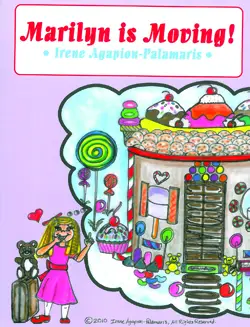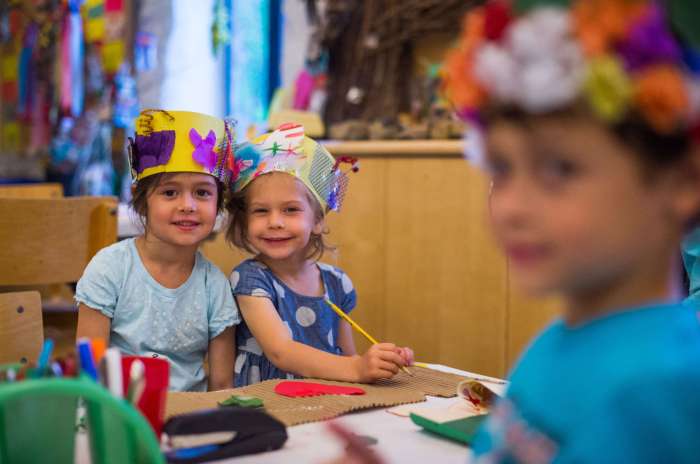From suburbs to city, west coast to east, or just one neighborhood over, packing your family up and making a home somewhere new is daunting. Follow our tips to make the transition easier for you and your kids.
Moving, whether it be across the country or across town, can be an incredibly stressful experience in a family’s life. It can be bad enough for us adults—how about our kids? Experts in the field as well as parents who have made the move are here to give step-by-step advice on things you can do to help your family have a smooth (well, smoother) transition.
Before the Move
Age determines ease of moving transition.
“You can divide kids by age,” says psychiatrist Marina Doulova of ABC Psychiatric Services in Forest Hills. “Kids before 5 have a short memory and can make the move more easily. Kids from age 5 to 12 have a better memory of what they are leaving, and after 12 they are more able to have abstract thoughts and are able to comprehend the move.”
Make physical reminders of your old home and memories.
Encourage children to express their feelings. “Tell your kids it’s okay to feel sad,” Doulova says. “Share your own feelings and act as a role model. But try to stay confident and positive about the new move. Tell kids they are going on a new adventure. Talk about the new place and making new friends. Before you move, make a memory box. Record the place and surroundings. Make a video of that place, make a photo album. Before you go, go on the Internet and look at the new place.”
Have your kids help purge and pack their toys before the move.
You can help make the transition a smoother one before the packing even begins. It’s best to go through a child’s things and decide what he wants to take with him and what he doesn’t need anymore, says certified professional organizer Cynthia Braun, who owns Organize Your Life, based in Lake Grove.
“It’s important to work with kids and let them make the decisions themselves,” Braun says. “When the child looks at an object, ask him how often he uses it, who gave it to him, how it feels to hold the item, and if he didn’t see it for a year would he miss it. Keep things that give you purpose and discard things that don’t.”
“Organizing helps a child feel more secure,” Braun says. “After a child organizes his things he feels great, empowered, and relaxed. It helps with the unpacking. He knows exactly what he has and where his things will go.”
Another tip for packing: Let little ones pack their toys last and unpack them first. If they have a special item like a teddy bear or blankie, keep that with them at all times. It’s also important to maintain structure and routine in your child’s life.
Show children their new town and home before moving.
If you have the ability, physically show the children where they are going, advises Tammy Gold, licensed psychotherapist and certified parent coach, founder of Gold Parent Coaching based in Short Hills, New Jersey. “Fear of the unknown can be overwhelming. Drive them to the new house and the new town. If it’s not possible, then go on the Internet and pick out pictures of the town. Have the real estate agent take pictures of the new house, inside and out.”
“It’s important to make kids feel like they are in control of the process,” Gold says. “If you can, have them be involved in the house hunting. Tell them why you’re moving. For example, you lost your job and you can’t find a new one in the old area.”
Go to the new school and show the children around, Gold says. Arrange play dates with children from the new school if time allows. Of course, teens are beyond the play date stage—but you can have their peers over for pizza or coffee, or host a family barbecue.
In addition to getting involved in the new school, finding a local church or synagogue opens doors to potential friends. They may have a committee that welcomes newcomers.
After the Move
Help kids settle in a new town by enrolling them in familiar activities.
Of course you can help your children make new friends by putting them in activities that they have done in the old place. If they were in dance, put them in dance. If they were in soccer, put them in soccer.
“You’re creating continuity for the child,” says Jordan Snider, director of Future Stars Summer Camps in Westchester. “They’re comfortable on the [ball] field, where everything at home is new to them. It’s important for parents to speak to whoever is in charge [of the program] and tell them what’s going on. They can keep an eye out for the kid’s emotional well-being.”
“It’s important to involve them in an activity they enjoy,” says Heather Capelle, director of Applause, a children’s music and theater program that has branches in Westchester as well as New York City. “It’s a wonderful way to involve kids in the new community. Kids in our program meet kids from lots of different schools. Your child can meet and bond with kids doing an activity they really love.”
And getting toddlers and even smaller babies involved in Mommy and Me classes is a great way for you to meet other parents. “After the classes many moms go to the park and have a play date with the kids,” Capelle notes.
Help kids settle in new town by keeping familiar routines.
“We woke him up at the same time every day,” says Nicole Blackmon of New York City, who moved with her 3-year-old son Blake twice in his young life. Blake was born in Washington, DC, then due to a job transfer the family moved to Chicago when Blake was 2-and-a-half, and another job transfer brought the family to New York in April.
“His naps are always at 2:00, we eat at 7:30, and his bedtime is 8:00.” Another thing Blackmon did was set up Blake’s room first. “We painted it the same color as his room in Chicago, and all his toys were laid out similarly to the way they were in Chicago.”
Experts suggest allowing older children to choose the paint color for their new room and to set up their own furniture.
Keep in touch with friends in your old town.
While the focus is on making new friends and connections, let kids keep in touch with their old friends by email, Skype and Facebook. Teens may be leaving behind important relationships. Let them mourn their loss, and if finances facilitate, arrange trips where your teenager can visit her boyfriend or her best friend can come to visit.
While moving with kids may seem daunting, rest assured that it is something that can be done. Experts agree that while it may take time, kids are resilient and will adjust to their new surroundings. With support and guidance, kids acclimate beautifully.
 |
In her book Marilyn is Moving (AuthorHouse, $19.99; bn.com) author Irene Agapion-Palamaris suggests hosting a moving party with your children’s neighborhood friends—not a “goodbye,” but a “see you soon.” |





















